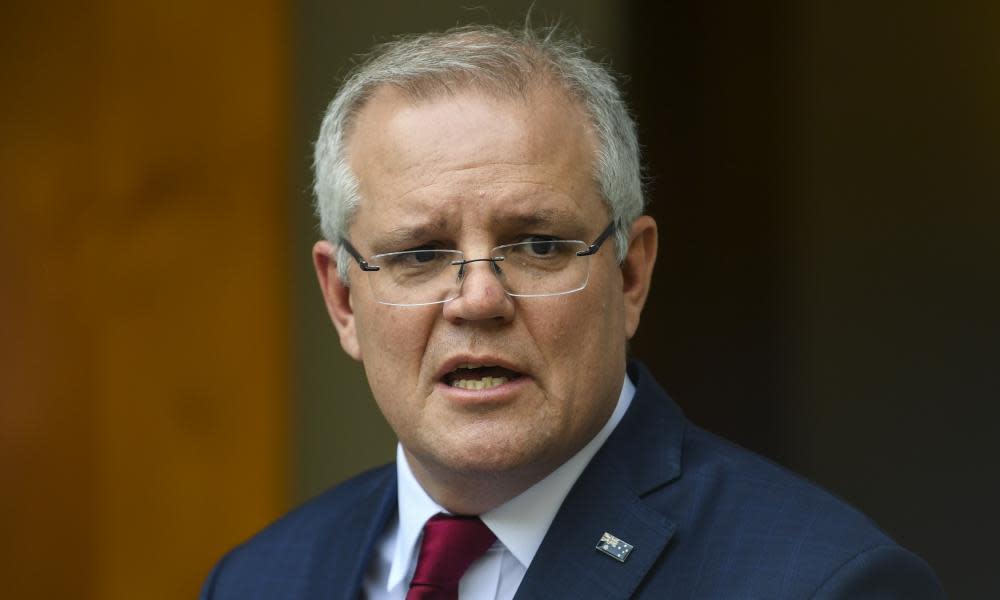‘It’s called jobkeeper for a reason’: Morrison responds to companies subsidising dividends

The prime minister, Scott Morrison, has responded to reports that companies are using the jobkeeper income support scheme to subsidise dividends to shareholders by stating the program should be used for the benefit of workers.
Guardian Australia has reported some companies that received jobkeeper cash have, at the same time, paid hefty dividends to shareholders – including about $2.5m that furniture group Nick Scali paid to its managing director, Anthony Scali.
The “dividendkeeper” payments have prompted calls for an overhaul of the jobkeeper scheme, with the Greens and Centre Alliance senator Rex Patrick calling for companies that take jobkeeper and pay dividends to be forced to repay the subsidy to the commonwealth. The Greens also want such companies banned from the jobkeeper program.
“Well we obviously want the income support that we’ve been providing through companies to be there for the benefit of those workers,” Morrison said on Friday.
“It’s called jobkeeper for a reason, to keep people in jobs, and that’s what it’s primary purpose was, and we believe that’s what its primary purpose should be.
“Our purpose about it was very clear and I think that should be the shared purpose.”
Related: Australia should borrow at today's low rates to pay for job creation – RBA chief
There are also concerns about jobkeeper’s lack of transparency. While both New Zealand and the US keep public databases of companies receiving income support, Australia maintains no such record.
“Jobkeeper was designed to keep firms afloat and workers employed – not to allow companies to pad their profits,” Labor’s shadow assistant treasurer, Andrew Leigh, said.
“Firms who are using jobkeeper to pay dividends are undermining the purpose of the scheme.
“This highlights the lack of transparency in the scheme. In New Zealand, anyone can log onto a website and see which firms are receiving their wage subsidy scheme. In Australia, even the largest recipients of jobkeeper don’t have to disclose it.”
The Australian Council of Superannuation Investors, which advises super funds that manage more than $2tn in retirement savings on governance issues, said that companies needed to be clear about the impact of jobkeeper and other subsidies.
“If these payments aren’t disclosed in financial reports, investors won’t get a clear picture of company performance,” the ACSI chief executive, Louise Davidson, said.
Related: More than one million Australians out of work as unemployment rate edges up to 7.5%
She also raised concerns that jobkeeper could be used to swell executive pay packets.
“Boards of ASX200 companies will need to seriously consider how remuneration outcomes will be perceived externally, given the widespread impact of the pandemic on investors, staff, customers, governments and other key stakeholders,” she said.
“Investors will be concerned if companies pay incentives to executives where performance has been propped up by jobkeeper or similar payments.”
The Reserve Bank of Australia governor, Philip Lowe, told a parliamentary committee hearing on Friday he did not have a problem with companies that received jobkeeper paying dividends or using the money to pay executives.
“It’s a matter for each individual company how they pay their executives and how they use their profits,” he said.

 Yahoo News
Yahoo News 
